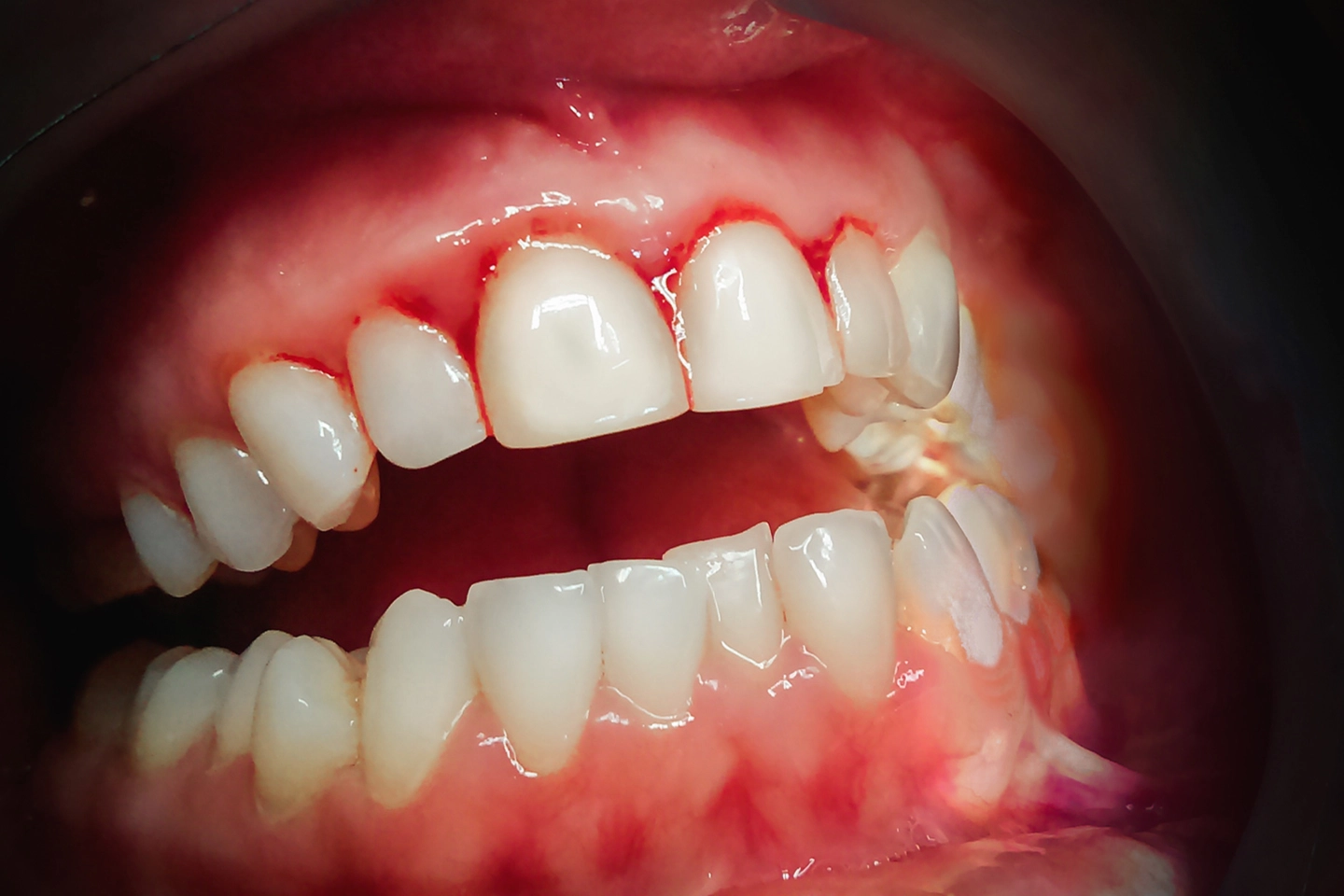Physical Examination
Before beginning the cleaning, a dental professional will conduct a thorough examination of the mouth using a small, angled mirror. This tool helps the dentist inspect all areas of the teeth and gums to check for any signs of oral health issues, such as inflamed gums, which could indicate gingivitis—the early stage of gum disease. If no significant issues are detected, the cleaning process will proceed without needing further consultations.
Scaling
Scaling is a critical step in removing plaque and tartar buildup that accumulates on the teeth between dental visits. A scaler, a special hook‑like dental tool, is used to scrape away hardened plaque and tartar from the surface of the teeth and around the gumline. However, advancements in laser dentistry now offer a less invasive alternative to traditional scaling, effectively targeting plaque and bacteria with minimal discomfort. Regular brushing and flossing help minimize the need for extensive scaling, making the process quicker and more comfortable.
Polishing and Cleaning
After scaling, the next step is polishing the teeth using a high‑powered electric brush and a special gritty toothpaste. This process smooths the teeth and removes any residual plaque that may have been missed during scaling. The polishing also helps protect teeth from bacteria buildup between dental visits. Although the electric brush may create a buzzing sound, the process is painless and leaves the teeth feeling exceptionally clean.
Professional Flossing
Flossing is an essential part of oral hygiene, and professional flossing ensures that any remaining plaque or food particles are removed from between the teeth. Patients who do not floss regularly may experience slight discomfort, but the dental professional will offer recommendations to improve at‑home flossing techniques for better oral health. If you experience dental anxiety, let your dentist know so they can provide a more comfortable and stress‑free experience during your visit.
Fluoride Treatment and Protective Measures
At the conclusion of the cleaning, patients may be asked to rinse with a fluoride mouthwash. Fluoride is a vital component in preventing tooth decay and strengthening enamel. If recommended by the dentist, fluoride treatments both in‑office and at home can further enhance dental protection.
Dental Cleaning for Sensitive Teeth
For individuals with sensitive teeth, dental cleanings can sometimes be uncomfortable. If you have sensitivity issues, it’s important to inform your dentist at the beginning of your appointment. The dental professional can take measures to minimize discomfort and suggest ways to reduce sensitivity before, during, and after the cleaning. In some cases, restorative dentistry treatments, such as dental fillings or crowns, may be recommended to protect exposed dentin and reduce sensitivity. Regular brushing with a sensitive toothpaste and following a consistent oral hygiene routine can help manage sensitivity over time.
Regular Dental Cleaning
A routine dental cleaning, also called prophylaxis, is performed every six months to remove plaque and tartar buildup and keep the mouth healthy. This process is vital in preventing cavities, gum disease, and other oral health issues.
Deep Dental Cleaning (Scaling and Root Planing)
Deep cleaning is recommended for patients who have not had a dental cleaning for an extended period or who exhibit signs of gum disease. Unlike regular cleanings, deep cleaning involves:
- Scaling – Removal of tartar and plaque from below the gumline.
- Root Planing – Smoothing out the roots of the teeth to help the gums reattach and prevent bacterial growth.
Deep cleaning treatments may require multiple sessions to ensure thorough plaque and bacteria removal.
FAQs About Dental Cleaning and Examinations
Q. What is a dental cleaning?
A dental cleaning is a routine procedure where a dental professional assesses oral health, removes plaque and tartar, and polishes the teeth to maintain optimal oral hygiene.
Q. What is dental scaling?
Dental scaling is the process of using a specialized metal tool to remove plaque and tartar from the teeth and gumline, preventing cavities and gum disease.
Q. What is a deep dental cleaning?
Deep dental cleaning, also called scaling and root planing, is a more intensive cleaning process used to remove bacteria and tartar buildup beneath the gums, preventing gum disease and tooth loss.
Q. What should someone do in a dental emergency?
In case of a dental emergency, such as a knocked‑out tooth or severe tooth pain, contact our dental team immediately at (928) 428‑1617. For medical emergencies, always call 911.
Q. How can patients maintain oral health between cleanings?
To maintain oral health between dental cleanings, patients should brush twice a day, floss daily, and use fluoride mouthwash. Avoid smoking and sugary foods to prevent plaque buildup.
Important Dental Terminology
- Cosmetic Dentistry – Dental procedures aimed at improving the appearance of teeth, gums, and bite.
- Decay – The breakdown of tooth enamel due to plaque and tartar.
- Dental Caries (Cavities) – Small holes in the teeth caused by plaque buildup and poor oral hygiene.
- Dental Prophylaxis – A professional cleaning procedure that removes plaque, tartar, and stains from the teeth.
- Dental Sealants – Protective coatings applied to the chewing surfaces of teeth to prevent cavities.
- Gingivitis – Inflammation of the gums caused by plaque buildup and poor oral hygiene.
- Preventive Dentistry – Dental practices aimed at maintaining oral health and preventing diseases.
- Tartar – Hardened plaque that requires professional removal.
- Tooth Enamel – The outermost layer of the tooth that protects against decay.
